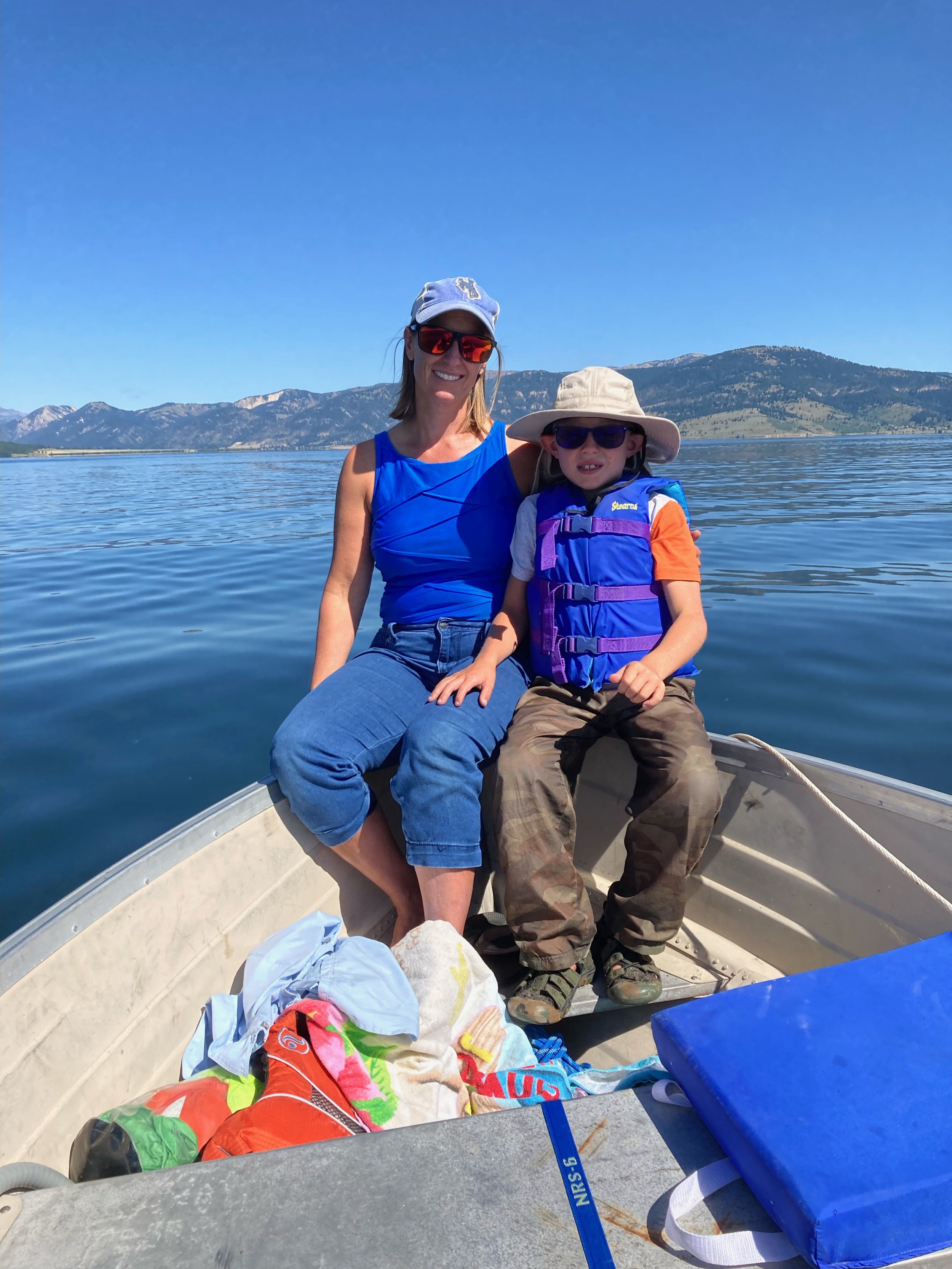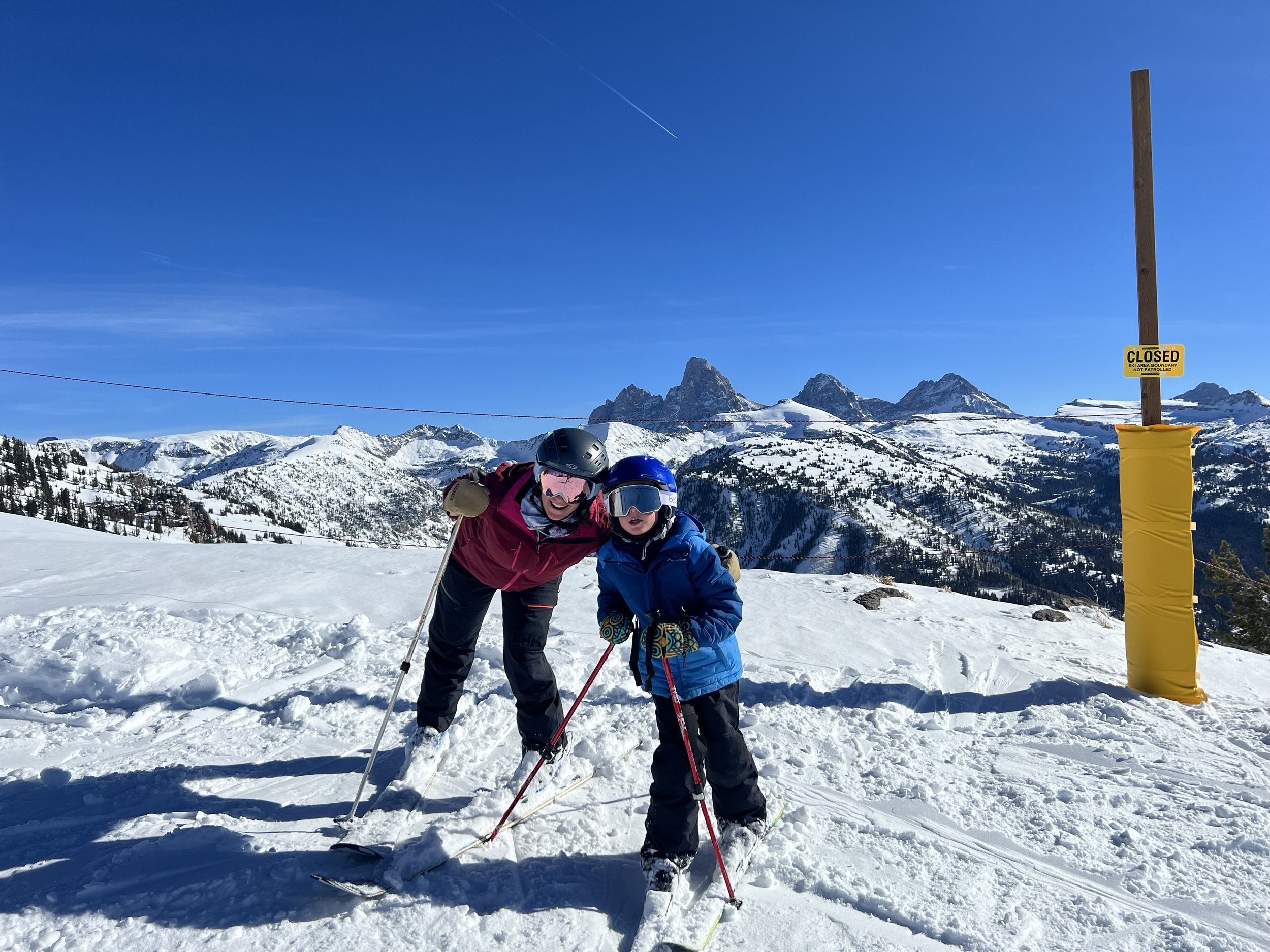Sports Psychologist Chris Heilman on Why Mindset Matters
Part 5 in the JOY SEEKERS series, focused on mom athletes and their appetites for risk.
Read the series from the beginning.
When you come from the world of elite sports, success is often marked by a course record, first ascent, or podium. The difference between winning or losing, success or failure, life or death, may be as simple as a split second decision. So if you’re motivated to compete, what makes a winning mindset?
A Winning Mantra
Dr. Chris Heilman spends a lot of time thinking about that question. The sports psychologist, coach, trainer, and mom of 9-year-old Will works with mountain athletes at the top of their games as well as kids, weekend warriors, and everyone in between as part of her Driggs, Idaho-based business, Mindset. Before she studied sports psychology, she was an athletic trainer to collegiate and Olympic athletes.
“Yes, you are forever changed after pregnancy or injury. And yes, you can still go off cliffs if that’s something that brings you joy.”
Chris with her son Will on Hebgen Lake in Montana
When it comes to taking risks postpartum, Chris emphasizes the importance of easing into activities and being patient with yourself as you build back your confidence. When I asked her why I was scared of skiing after missing a season for pregnancy, she said we all have to return to the motor program—aka muscle memory—we built before taking time off, whether for injury or pregnancy or something else.
“Your skills are there,” she said. “It’s more about trusting yourself and rising above the overthinking that anxiety can induce. Yes, you are forever changed after pregnancy or injury. And yes, you can still go off cliffs if that’s something that brings you joy.”
It can help to develop some kind of mantra to regulate your nervous system while reminding yourself what you’re capable of. Like Britt during her bike races, she said I needed to feel confidence in my body’s ability to perform before I could push my limits, or even reach my pre-pregnancy performance levels.
The late professional mountaineer Hilaree Nelson told Outside Magazine how she navigated risk after becoming a mom and how thinking about her kids actually saved her. After more than two days of climbing mostly above 8,000 meters in the Himalayas, Hilaree began hallucinating while down-climbing loose, icy rock. Then her kids appeared in her mind telling her to wake up and get down. She was able to regain focus and safely make it to camp. Looking back she attributed that hallucination to the altitude, but at the time she needed a mindset shift to survive.
Another time the thought of her kids almost led to an accident. Hilaree described looking straight down a crevasse and thinking about death, then about her boys. Her heartbeat sped up and her breathing got shallow. Without the ability to catch her breath and remain calm, she had little chance of survival. So she pushed the thought of her kids out of her head.
Grieving Your Former Self
When Chris gave birth to her own son nine years ago, she noticed a major shift in her own identity, not to mention a shift in energy levels and her ability to commit to intense mountain adventures, like backcountry skiing, trail running, rock climbing, hiking, or countless other outdoor adventures in the Tetons near her home.
“I don’t know how I’ll feel on a given day,” she says. “ I don’t know if I’ll be up at night with a sick kid or a kid who just can’t sleep. I’ve dug myself into a hole by trying to do it all, but that just doesn’t work.”
“People assume that you’re a mother and that’s the best thing that ever happened to you. No, I’m more than that. It’s important for women not to feel guilty if for them, being a mom is just ok, and they still identify more with their mountain athlete selves.”
Chris and Will skiing at Grand Targhee (Wyoming) near their home
The 44-year old used to pour all her time and energy into outdoor adventures, and epic mountain feats formed the basis of many friendships, so the adjustment to parenting required a mindset shift. “Grieving my old self was helpful. My friends in their 30s don’t have kids and I can’t keep up with them, and finding moms who want to get out is harder,” she said. “Before becoming a parent, I did so many cool things, and that’s awesome. Now things are different and that’s ok, too. I found acceptance more helpful than trying to pretend nothing has changed. My son is nine and I have finally come to terms with my new reality.”
Like many ambitious, working moms she describes the external pressure to put aside personal passions to make room for her mom role.
“I’m a sports psychologist. Part of what I pride myself on is getting out there and doing the sports, too. People assume that you’re a mother and that’s the best thing that ever happened to you. No, I’m more than that. It’s important for women not to feel guilty if for them, being a mom is just ok, and they still identify more with their mountain athlete selves.”
“This is who I am now,” she says. “I like that I get outside, whatever that looks like because I still feel most empowered when I get out and explore.”
It’s Ok To Take Breaks
Chris launched her coaching business a few years before Will was born, then spent the next 10 years growing it while raising a young kid. When the pandemic hit in 2020, she found her coaching services more in demand than ever. Little by little her own mental and physical health started to decline. She asked herself, “What would you do if you couldn’t fail?” Her answer: “Take a break from my business.”
So, the self-described high achiever, who normally pours an Olympian’s level of intensity into everything she does, chose to walk away.
”I knew that a key to living at your peak it to closely listen to that small, still voice and take action—no matter how scary,” she said. “What surprised me was that despite it feeling like I was quitting each time I said NO to the biz, I was saying yes to myself and my seven-year-old son.”



